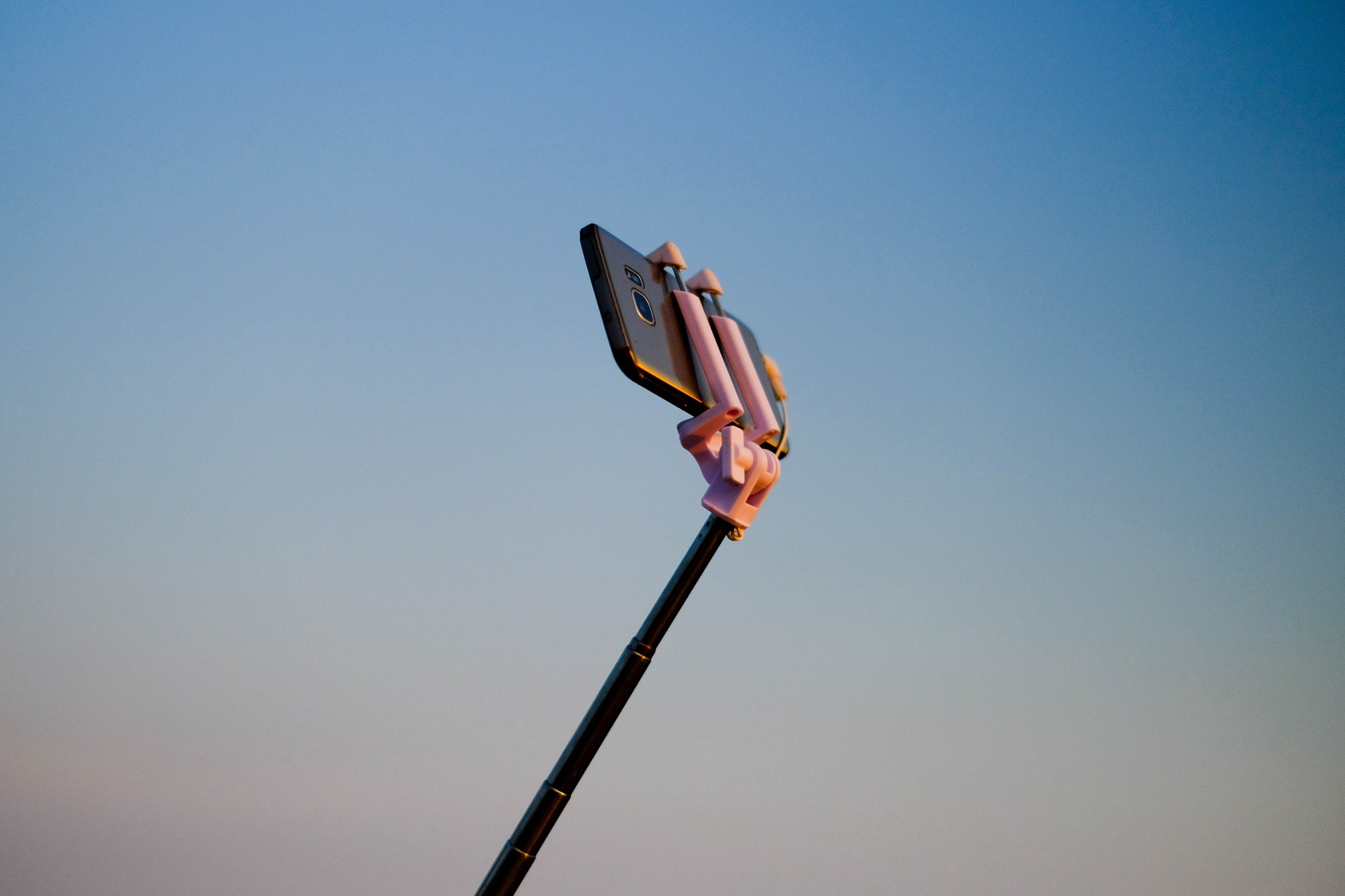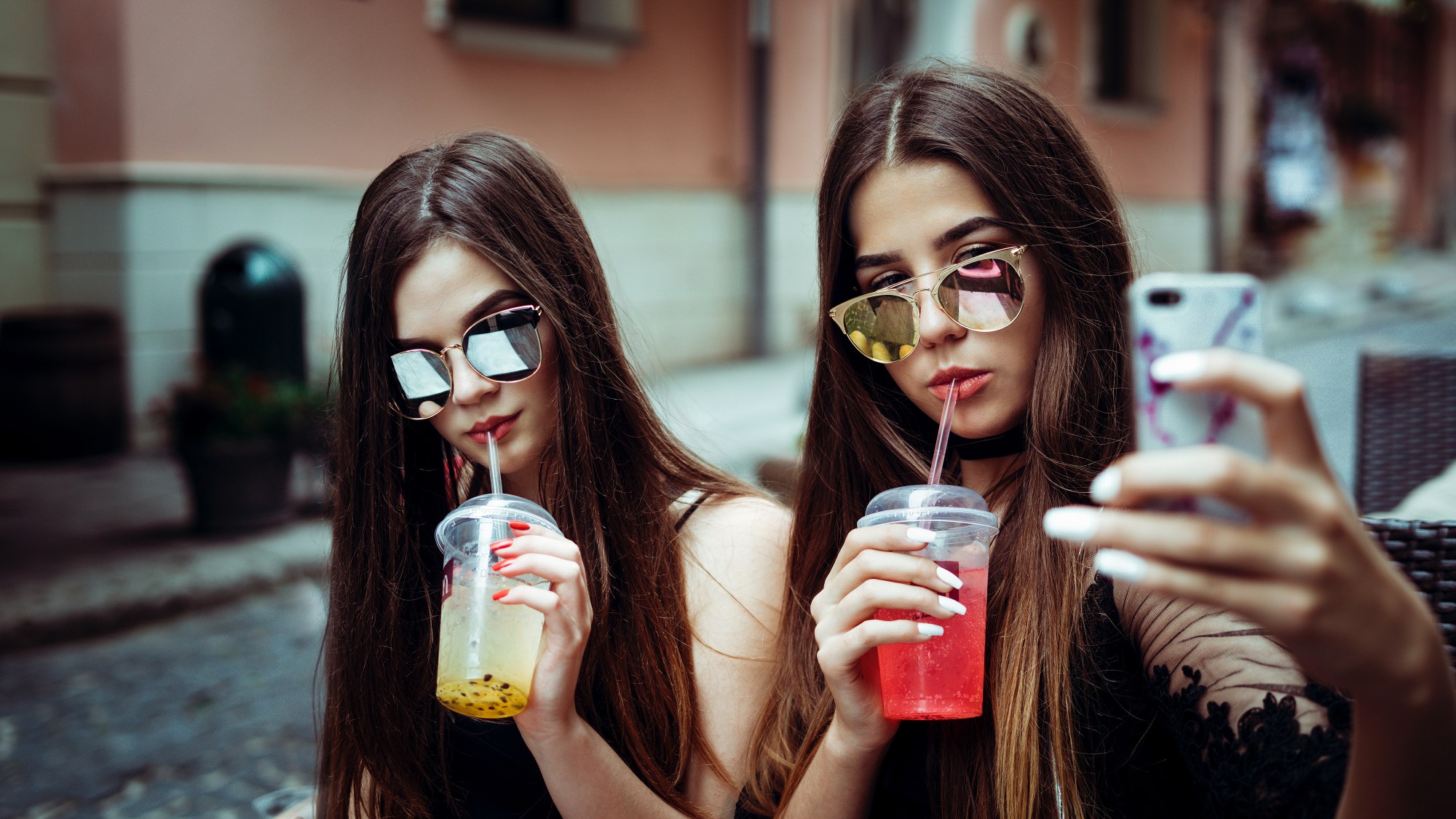Eva Rose, 21, has been on three girls’ holidays — she’s never felt able to relax on a single one though. Knowing there was always a camera about and that the images would be shared on social media made her feel down about her body and even guilty.
“The first holiday I went on was to Turkey when I was 16 and I was a size 16, verging on 18,” says the Birmingham University student. “I made sure I was at the back in photos and that part of my body was out of the frame. I couldn’t wear strappy tops to the beach and ended up wearing really horrible shawls because I knew there would be pictures. Now when I look back at the photos I don’t think ‘oh, what a good holiday it was’, I think how uncomfortable I felt.”
Like it is for so many millennials and Gen Zs, social media is always “a massive part” of the holidays. She remembers occasions where the purpose of going to places was purely for an Instagram picture and part of the process of going out for the night involved a 20-minute group photo shoot followed by time spent lying on their beds to edit posts, barely talking to each other.
Hours after we speak, Eva Rose is travelling to Amsterdam now as a size 12, but also as someone without social media. She knows this will be a good trip. “I’ve been so much happier since I deleted Instagram, Facebook and Snapchat,” she says. “Instead of taking selfies, I’m more likely to be reading a book or taking pictures that capture a moment rather than to solidify it on social media.”
Susan Sontag called it more than 40 years ago when she critiqued the obsessive capturing of images in tourism and wrote about the addiction to having “reality confirmed and experience enhanced by photographs”. But could she have imagined the resounding link between social media and the well-being of today’s “image-junkies”, with Instagram rated the worst platform for young people’s mental health?
Poor sleep, low self-esteem, FOMO, anxiety and depression are just some of the things Dr Phil Lurie, a clinical psychologist who has worked with the NHS’s Child and Adolescent Mental Health Services (CAMHS), has seen in digital natives with problematic social media use. He describes it as a negative cycle of needing validation through likes that leads to unhealthy levels of checking posts and the reinforcement of the idea that we’re only having a good time if other people think we are as well. “You can’t just enjoy the moment when you’re constantly thinking, ‘this moment has to be enjoyed by others for me to know it’s a good moment’.”
Hannah, 24, who’s living in London, has, like Eva Rose, also taken a step back from social media after getting caught in the trap of believing her experiences were only real if they were validated online. She now realises enjoying the moment in real life is more important. “I used to think that if I didn’t post good pictures on holiday and if my friends didn’t like or comment on them that it wasn’t an authentic experience,” she says. “Now I share some things but not a lot, and take a lot of pics that I just keep private.”
Lurie says, however, that insisting people can’t share moments is unrealistic because it’s part of the evolved experience. “We’ve got to accept that young adults want to have their phones and be in the know,” he explains.
Katerina Georgiou, a registered counsellor, agrees. Instead, they both suggest tweaking the way we approach our online lives to stop it ruining the summer holidays.
Here is their guidance for making the most of the break when you feel like you need to escape the pressures of social media.

Is social media taking over your life?
Documenting things is totally OK, but when it becomes addictive and obsessive it impacts on sleep, self-esteem and identity, and can trigger depression and anxiety. At that point, it’s time to consider your relationship with social media and limit the time spent on it.
Georgiou suggests starting by dedicating an hour each day to switching off everything. Leaving your phone in the hotel room for the day while you go out is also an obvious solution and, aside from the break, it’s an excellent experiment for challenging unhelpful beliefs.
Lurie says: “The theory might be that you’re going to be a social outcast but the other theory might be that the world didn’t end, it didn’t matter that you didn’t share anything. Reflect on that to decide what you can do differently.”
Are you detached from the experience IRL?
You’ve saved for the holiday for months and you’re on the beach, but instead of feeling the sun beaming down on your skin and the sand between your toes and hearing the waves against the shore, you’re engrossed in your phone checking how many likes that bikini selfie got. “When this happens, we’re not savouring the moment because all that matters is that we’re documenting it,” Lurie says.
Being mindful can change this to a grounded experience that will be more profound and memorable. “A good mindfulness exercise is to stop and ask yourself if you can notice five things you can see, four things you can feel, three things you can hear, two you can smell and one you can taste,” explains Lurie.
Got FOMO watching friends back at home when you’re supposed to be having a great time away?
Regardless of your situation, if other people appear to be having a good time it’s easy to think, “Why am I not having that good time?” The anxiety and paranoid beliefs about what we’re missing out on can make it hard to enjoy the amazing experience you’re having because there’s a constant need to be involved whether you’re there or not, says Lurie.
Overcome this by recognising there is life beyond what he calls the “showreel of happiness”. Acknowledge that people’s social media is about their best moments with all the right filters and that it is mostly not a true reflection of reality. “No one is documenting the other 90% of their life with all its mundanities,” he explains.
When you compare yourself to other people’s pictures
Eva Rose used to look at Instagram and feel guilty about her image. It even made her feel like she didn’t deserve to wear some of the clothes her friends were wearing. Lurie warns this alarmingly common practice can lower feelings of self-worth.
Remembering the showreel of happiness here will help put things into perspective and develop a more realistic view of the images shared online. Normalising your feelings is also helpful. “Most people in life are struggling no matter how perfect their image might seem on the outside,” Georgiou says.
Lurie also recommends evaluating the accounts we follow to cut out negative influences. “If we are envious of someone’s Instagram feed maybe it’s unhelpful to look at it and instead consider where the envy stems from.”
What to do if you’re being cyber-bullied
Perhaps the most sinister element of social media is the inability to escape negativity from peers. It used to be that you’d only get bullied during the school day or on the journey to school, but now people can be targeted when they’re on the other side of the world and at any time.
“If someone’s been cruel to you, don’t deal with it on your own,” Lurie says. “Share it with someone you trust and report it to the platform. Don’t feel like you need to live with that experience — it’s common but shouldn’t be accepted.”
When things get too much
Wherever you are in the world, social media can sometimes ruin your day no matter how hard you try to avoid it. Consider getting support if it becomes overwhelming, says Georgiou. If counselling seems too big a step, helplines such as Childline (0800 1111) or peer support networks like TalkLife offer free and confidential advice.
